QuestionMy little Lily has been pregnant for what seems like forever and I was trying to find out just how close to giving birth she is. These are the things I have seen over the past week. 1. She is eating like a horse. 2. Sleeping a lot 3. She keeps having what looks like vibrations around where her tail and bottom is (what is that)? 4. She is super clingy and normally she doesn't care too much for people. 5. She is staying under my bed a lot. (I do have her a place fixed but she doesn't seem interested in it.) But, mainly what I was wondering about besides how close she is, is what are those vibrations around her tail and bottom?
AnswerSabrina,
Increased appetite and need for sleep are normal during pregnancy. I'm a little concerned that your little girl may be having some contractions and I do think that it would be wise to have her assessed by a veterinarian to determine her approximate due date or if she's even pregnant because cats can sometimes develop a condition called false pregnancy where they have all of the symptoms of being pregnant without actually being pregnant. Being super clingy could mean that she's close to delivering her litter, but it could also mean that something's wrong and it's possible that Lily may even need a caesarian to have the best chance of getting her and the babies through this process safely and keeping everyone as healthy as possible. The gestation period for cats is between 60-68 days so I'm not sure that she's pregnant since you seem to be describing a very long pregnancy. Your veterinarian can perform an ultrasound or x-ray to determine fetal age and a rough due date as well as possibly letting you know how many babies to expect. It's not uncommon for cats to want to have their babies in quiet, dimly lit surroundings where they feel safest, that usually translates into having kittens in closets, under beds, behind couches and generally in small, difficult to reach places so it doesn't surprise me that she seems to be spending a fair amount of time under the bed. Overall I do recommend that this kitty is seen by a vet to rule out any problems with the pregnancy and ensure that everything is as it should be. Appropriate prenatal care is just as important in cats as it is in people.
Spaying and neutering is an extremely important part of the responsibility that goes along with caring for a pet. There is a serious pet overpopulation crisis and unfortunately many healthy, adoptable cats and kittens are put to sleep simply because the shelter has run out of time and space and can no longer keep them. Spaying and neutering also contributes to long term health and behavioral benefits. Cats that have been spayed/neutered are at a much lower risk of developing serious behavioral problems like using urine or feces to mark their territory, fighting and howling and caterwauling to advertise their availability to mate to name a few common issues. Health benefits to spaying and neutering include reducing the risks of breast cancer and painful infections of the mammary glands. Spaying a female cat also prevents further pregnancies, however this surgery has a number of benefits aside from population control, for instance spayed female cats don't develop uterine and ovarian cancers and they are also protected from a serious uterine infection called pyometra which is fatal without prompt medical treatment. Sadly all too many cats and kittens are surrendered to animal shelters worldwide simply because they aren't wanted. I strongly advise you to speak with your vet about the importance of spaying your little girl and of course sterilizing any other pets you care for in the future to prevent them from breeding and contributing to the already serious pet overpopulation problem affecting animal shelters, rescue organizations and good samaritans in the general public worldwide.
It's best to avoid allowing this kitty outdoors or to have access to an intact male cat from here on. Cats can become pregnant quite soon after giving birth and intact male cats have been known to kill kittens so that their mother would cycle back into season again and be ready to mate sooner. It's very important to be sure to wash and sanitize your hands prior to handling a mom in labor or her newborn kittens. Since the kittens don't have much of an immune system built up it's wise to ensure that they are kept away from other animals. Cleaning food and water bowls daily and disinfecting them with a weak bleach solution (5 parts water to 1 part bleach) every couple of days will help to keep the whole kitty family healthy. Be sure to keep the litter box extra clean, scoop it a minimum of once daily and empty it once or twice a week to wash it thoroughly with dish soap, rinse it well, then sanitize it with a weak bleach solution, this will ensure that mom doesn't bring bacteria back into the nesting box that may cause illness in the kittens. The kittens will need to be born in a quiet, clean, dimly lit environment where mom feels safe delivering them if at all possible. It's very important to keep the mom and her kittens in the cleanest environment possible to prevent them from catching viral or bacterial infections that they are too young to fight. A kitten gets antibodies from their mother to a certain extent, however if the mom isn't vaccinated serious and potentially fatal infections like distemper are very real possibilities. It's important to fill the small family's bed with clean, dry towels and change the bedding whenever it becomes soiled.
Now is a good time to make up a bed for mom's upcoming labor. A cardboard box lined with old towels or blankets will work well, especially if placed in a dimly lit, private location that's as quiet as possible. Disposable incontinence pads are a good idea if you have carpet in your home. These pads are fairly inexpensive, they are usually made from blue plastic with white absorbent material and are often used to protect furniture or wheelchairs of the elderly or disabled. These pads can be purchased in bulk at places like Walmart. Generally I suggest that placing them underneath the bedding is best, just make sure that nobody can ingest any part of these pads. I don't recommend the use of a heating pad in the nesting box as kittens can't control their body temperature very well and if there is a heating pad they can become overheated quite quickly, it's far better to make sure that the room they are in is kept warm enough.
If mom is in labor and has been pushing for more than one hour without producing a kitten this cat will need immediate care as this can mean that the kittens are simply too large to fit through the pelvis and be born which could mean a c-section. If greenish fluid comes out before the kitten it can mean that the placenta has separated prematurely which likely means that that particular kitten might not survive. If mom seems anxious or to be walking with a stilted gait (kind of like an old wind up toy) she may have a life threatening calcium/magnesium deficiency, this is more common in younger/smaller cats and is a medical emergency - the cat can begin to have seizures and die as a result.
If the kittens seem to be sucking well and they spend most of their time being quiet/nursing quietly they are probably getting enough to eat. If you notice that the kittens are quite noisy, squirmy and crabby it's very possible that they aren't getting enough to eat which could mean that you will have to supplement their diet with kitten milk replacer. If you do need to syringe feed the kittens be sure that the formula is body temperature and that the kittens are fed with all four paws facing the floor, if you feed them on their backs like human babies they will be more likely to inhale the formula and die from pneumonia. Just so that you are aware, this mom to be can't be spayed until she has completely weaned her kittens and her milk has dried up which happens roughly 2 weeks or so after she has completely weaned her babies. Mother cats don't need help to wean their kittens, they will generally start doing so around 6-8 weeks of age. I recommend that kittens stay with their mother for a minimum of 10-12 weeks as this allows them to learn how to be cats as well as learn important things like how to follow rules set by their family members. Bite inhibition is also learned at this time, the kittens essentially learn how far they can push their mother and that if they are bitten it hurts. This small but important lesson means that they may think twice before chomping down on your fingers or toes. The kittens should be handled regularly to get them comfortable with being touched, it will help them to be easier to place in permanent homes.

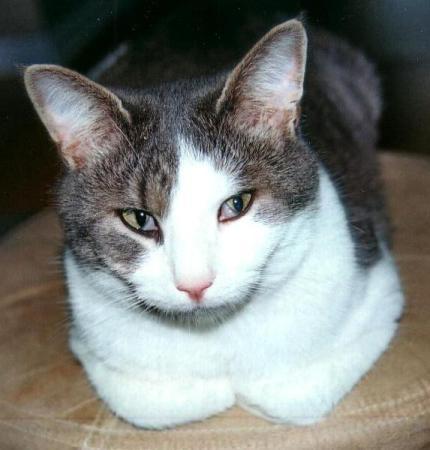 third eyelid, weight gain, irritability
Question
third eyelid pic
I have a 2 year old male cat
third eyelid, weight gain, irritability
Question
third eyelid pic
I have a 2 year old male cat
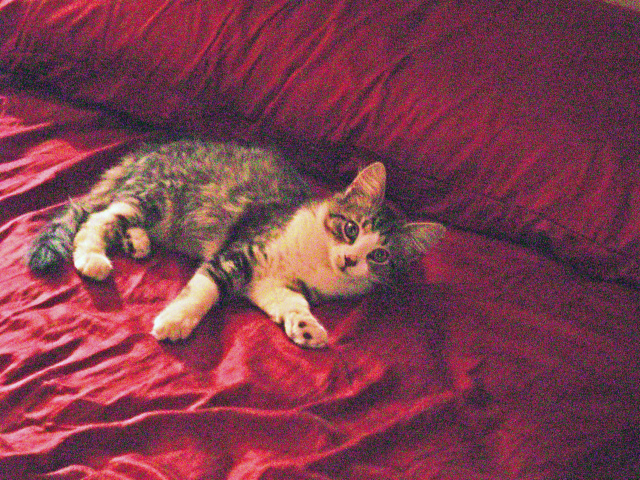 Additional info about the possbile norwegian
Question
Edmund at 4 months
I forgot to mention. Edmund
Additional info about the possbile norwegian
Question
Edmund at 4 months
I forgot to mention. Edmund
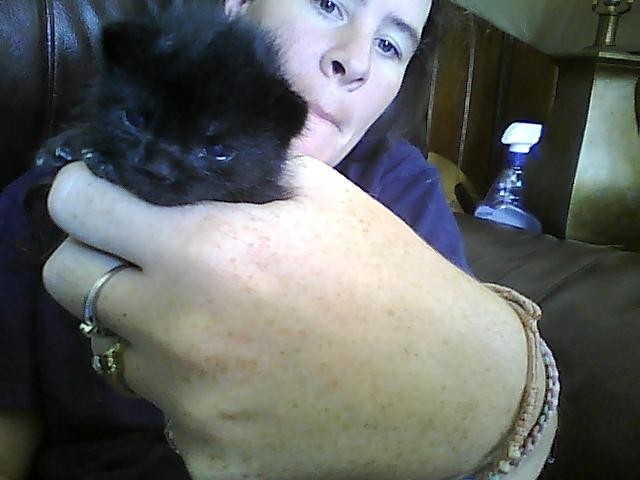 teething
Question
wally
i have a orphened kitten i have b
teething
Question
wally
i have a orphened kitten i have b
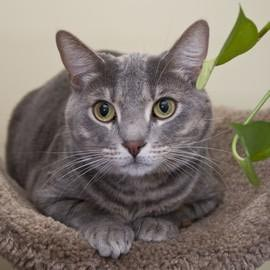 identify breed of cat
Question
Male cat 4 years ol
I recently adopted
identify breed of cat
Question
Male cat 4 years ol
I recently adopted
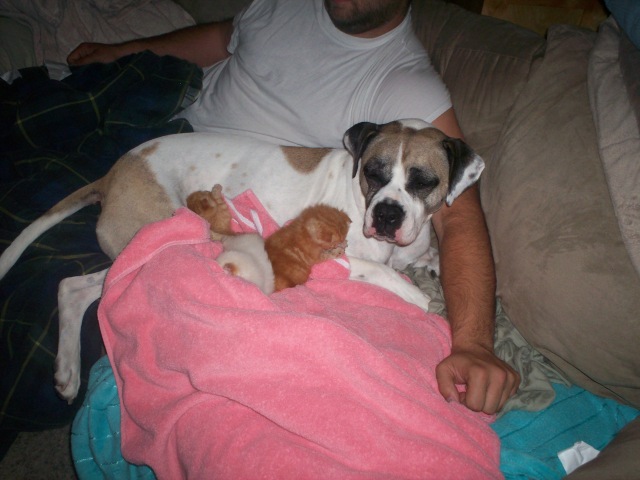 how long do I need to bottle feed?
Question
3 weeks old with their
4 weeks ago I was ridin
how long do I need to bottle feed?
Question
3 weeks old with their
4 weeks ago I was ridin